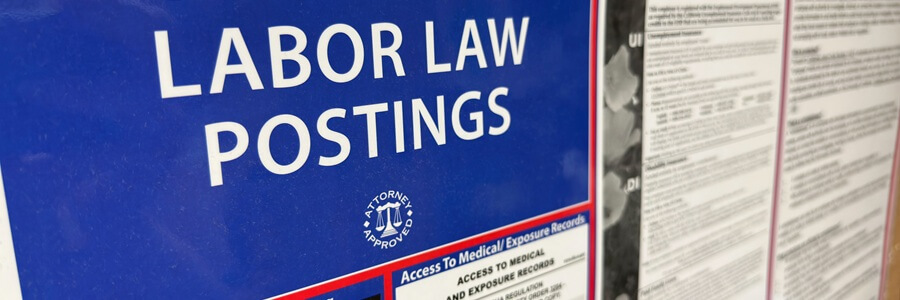How PEOs Improve Mental Health Offerings for Finance Professionals

Quick look: Many business leaders in the financial sector are adapting their approach to employee mental health. In this blog, learn about mental health challenges affecting today’s finance professionals. Most importantly, see how PEOs provide solutions for better mental wellness.
The topic of mental health has become prevalent within finance services and fintech. The growing recognition of workplace stressors’ effect on finance professionals is inspiring employers to invest in bettering their team’s mental wellness. Consequently, more financial institutions are partnering with professional employer organizations (PEOs) to achieve this goal. Discover how PEOs’ unique HR solutions are countering three primary mental health challenges finance experts are facing.
Challenge 1: Limited healthcare options
Mental health treatments are being sought after more actively within the United States. In 2021, the National Alliance of Mental Illness reported 65.4% of U.S. adults with a serious mental illness received treatment. The same report also noted that 47.2% of U.S. adults received mental illness treatment in general. Despite these numbers, there are still finance professionals struggling to access the mental health treatment they need.
The main culprit behind this unfortunate circumstance is limited healthcare coverage. Though the Mental Health Parity and Addition Equity Act of 2008 requires most health insurance providers to offer equal coverage for mental health benefits, insurance networks can still lack the qualified professionals needed to treat specific mental illnesses. The dilemma is why 30% of adults with mental illnesses in 2020 reported they didn’t receiving care due to their health insurance not covering or not paying enough for mental health services.
How PEOs help: PEOs like ExtensisHR specialize in providing robust healthcare benefits. Their healthcare networks feature top providers across multiple mental health professions, as well as comprehensive benefits packages that ensure employees can access the coverage they need without facing numerous and expensive out-of-pocket charges. PEOs’ benefits also provide telehealth services such as virtual nonemergency care and therapy sessions, giving employees flexibility and convenience while seeking wellness assistance.
Though these benefits are often treated as enterprise-exclusive packages by most healthcare networks, PEOs offer the same coverage to small- and mid-sized businesses at more affordable prices. In other words, employers can provide top-tier medical coverage without jeopardizing their budget.
Challenge 2: Fear of mental health stigmatization
Deep discussions around mental wellness have risen in recent years, but mental health stigma still threatens patients’ recovery. One 2019 survey revealed 51% of Americans believe people with mental health disorders experience “a lot” of stigmas and discrimination. This stigmatization is also plaguing the finance sector’s workplaces, with 70% of financial professionals believing that disclosing they’re suffering from anxiety or other mental illnesses would lead to negative consequences at their job.
The fear of being viewed lesser than by professional peers is enough to cause financial experts to ignore their illness’s treatment opportunities and needs. Unfortunately, some financial workers who choose to self-medicate their mental illness gain a higher risk of facing substance abuse and addiction problems.
How PEOs help: Destigmatizing mental health among employees starts with an empathetic company culture. PEOs help finance employers identify workplace risks and stressors that may trigger mental illness. Employers can also opt into getting their managers, supervisors, and executives special training that teaches mental health awareness. These methods help teams understand the best practices for addressing and supporting wellness within their teams.
Employee assistance programs (EAPs) are another PEO perk promoting positive mental health. These work-based intervention programs are designed to help employees resolve personal problems that may negatively affect work performance. EAPs share informative resources and encourage confidential, healthy discussions on emotional wellbeing, relationship problems, financial concerns, and other issues that can harm one’s mental wellness.
Though EAPs have proven advantages, 50% of employers believe low EAP utilization at companies is caused by lack of the program’s awareness. PEOs help craft the materials and planning behind your EAP, which includes ensuring employees know this service is accessible 24/7 to them and individuals in their household via phone and designated website.
Challenge 3: Unclear leave policies
Tight deadlines and meticulous projects are weekly, if not daily, occurrences for most financial experts. Many finance professionals work long hours in order to accomplish multiple, meticulous initiatives. One 2021 Goldman Sachs study revealed junior employees at investment banks can work up to 100 hours per week. Additionally, financial analysts tend to work over 40 hours per week on a routine basis.
The commonality of these long work weeks can drastically affect an employee’s mental health. 32% of employees in banking and financial services state long working hours make them feel heightened pressure in their role. This pressure increases the workforce’s levels of stress and burnout. According to the Harvard Business Review, workplace stress costs the U.S. economy over $500 billion and 550 million annual work days.
Leave policies are one main solution to the sector’s burnout dilemma. However, a firm’s inability to clarify and encourage their PTO policy can discourage financial professionals from utilizing any leave available to them.
How PEOS help: PEOs work with their customers to develop an effective paid leave policy. PEO advisors help firms decide which types of leave best fit their business, including but not limited to:
- Vacation/PTO
- Sick
- Parental
- Family/medical emergency
- Bereavement
In terms of compliance, PEOs ensure leave requirements set by local, state or federal laws exist in the policy. Additionally, PEOs help strategize the best practices to document the details of and educate workers on the finalized policy.
PTO tracking can also be improved by specialized human resource management (HRM) tools provided by PEOs. ExtensisHR, for example, offers a Work From Anywhere® platform that allows partners and their workforce to check the progress across various HR activities in a mobile-first user experience. This system helps managers track their employees’ time entry and leave status. It also allows workers to manage their PTO availability, giving them full transparency and peace on mind over how many vacation days they can take off and have accrued.
Achieve better mental health with ExtensisHR
Navigating mental health as a company can be an intimidating process, but the right PEO partner can give your team the support it needs to improve their wellbeing. Choosing ExtensisHR means access to a certified PEO (CPEO) whose award-winning solutions elevate HR strategies, including the ones driving mental wellness goals. Financial firms can also rely on ExtensisHR to complete other HR administrative tasks such as:
- Unlock full-scale recruiting without any additional costs
- Access supplemental benefits such as legal services, income protection, and pet insurance
- Minimize workplace safety risks with a thorough compliance strategy
- Establish effective payroll scheduling and tax management procedures
- And more!
Ready to kickstart a comprehensive mental wellness strategy? Schedule a meeting with an ExtensisHR expert today.



